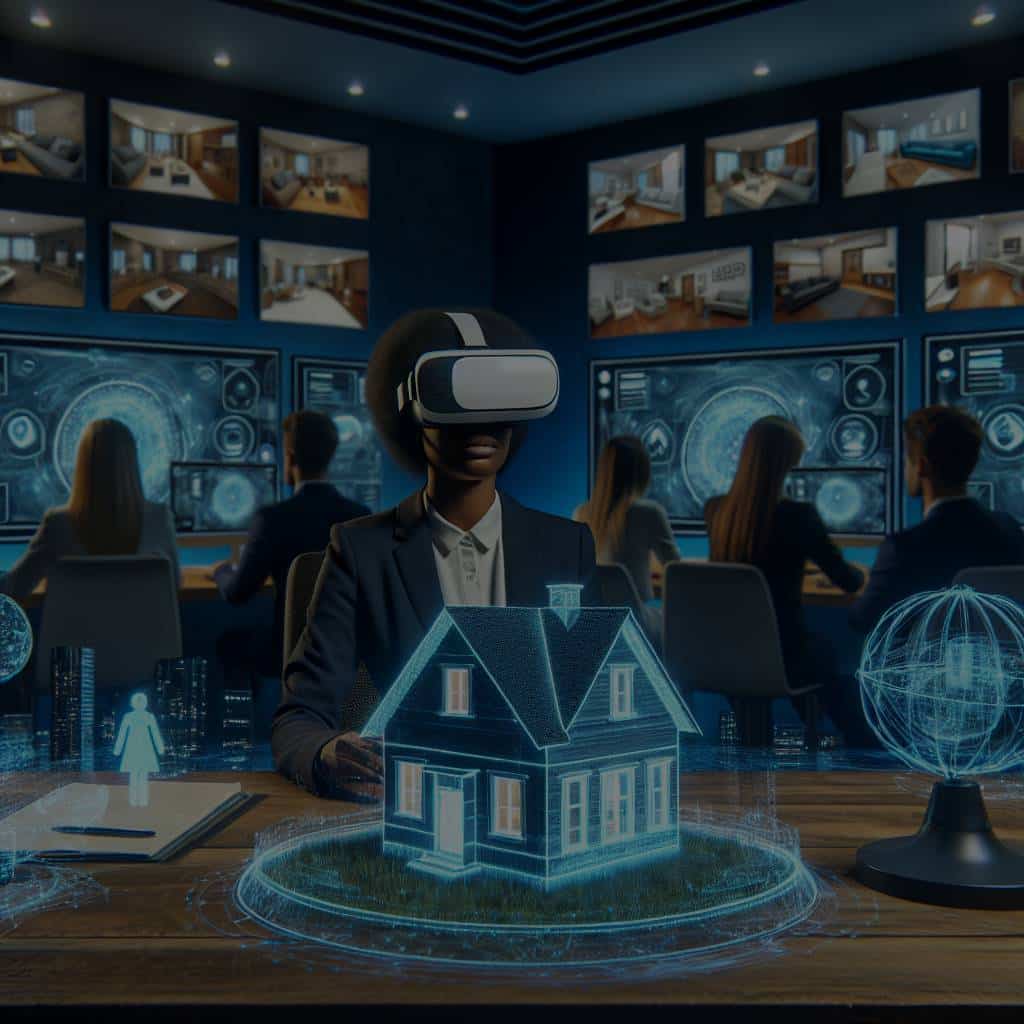The real estate industry has always been a dynamic environment, continually adapting to the ever-changing demands of clients. Today, in the era of digital transformation, real estate agents must not only adapt but also leverage new technologies to stay ahead. One such technology that has immense potential to reshape the industry is augmented reality (AR). This article will delve into how real estate agents can utilize augmented reality to enhance remote viewings, provide immersive experiences, and ultimately, boost their business.
Augmented Reality in Real Estate: Making Virtual Tours More Real
Augmented reality (AR) is a technology that overlays digital information onto the real world, enhancing users’ perception of reality. In the context of real estate, AR can transform 2D images into 3D models, enabling potential buyers to visualize properties in real-time and in a much more detailed and immersive way.
In parallel : How to Navigate the UK’s Help to Buy Scheme for First-Time Homebuyers?
Traditionally, the real estate industry has been reliant on physical viewings. However, with the advancement in AR technology, real estate agents can now conduct remote viewings with comparable efficacy. Using AR, agents can offer virtual tours where buyers can explore properties from the comfort of their homes. Not only does this save a lot of time for both parties, but it also widens the pool of potential clients as geographical boundaries are no longer a constraint.
Leveraging AR for Detailed Property Showcasing
The primary goal of a property viewing, be it physical or virtual, is to provide the potential buyer with an accurate representation of the property. Augmented reality, with its capacity to provide highly detailed and precise digital renderings, can elevate the standard property viewing experience.
Also to discover : What Are the Best Practices for Energy-Efficient Retrofitting in Victorian Homes?
Agents can leverage AR to showcase every nook and corner of a property, down to the smallest detail. An AR-enabled property tour can allow buyers to zoom in on specific areas, view the property from different angles, and even visualize how the property would look with different interior décor. This depth of detail can not only enhance the viewing experience but can also build a greater level of trust between agents and their clients.
Immersive Experiences: Engaging Clients in a New Reality
Engaging clients is a key part of the real estate buying process, and augmented reality can play a crucial role in this. AR can turn a regular property viewing into an engaging, interactive experience.
By integrating AR into their offerings, real agents can allow potential buyers to interact with properties on a highly personal level. Buyers can use AR to personalize properties by virtually adding furniture, changing wall colors, or modifying the layout, providing them with a tailor-made experience and a glimpse into their potential new home.
Utilizing AR Data for Enhanced Decision Making
Beyond providing immersive experiences, augmented reality can also provide real estate agents with valuable data. AR technology can track a user’s interaction during a virtual tour, capturing data on the areas they spent the most time on, the modifications they made, and the elements they interacted with.
This data can provide critical insights for agents, enabling them to better understand their clients’ preferences and needs. It can also inform decision-making processes, from adjusting property prices to tailoring marketing strategies. As such, AR not only enhances the client experience but also serves as a powerful tool for business development.
The Future of Real Estate: Augmented Reality and Beyond
The integration of augmented reality into the real estate industry represents a significant shift in the way properties are showcased and sold. As AR technology continues to develop and become more accessible, its role in real estate is set to grow.
Moreover, AR is not the only technology that the real estate industry can leverage. Virtual reality (VR), artificial intelligence (AI), and big data analytics are other technological advancements that are set to transform the industry. For real estate agents, the key to success in this new digital landscape lies in their ability to adapt, innovate, and leverage these technologies to meet the evolving needs of their clients.
In conclusion, augmented reality offers real estate agents a powerful tool to enhance remote viewings, provide immersive and personalized experiences, and make data-driven decisions. As technology continues to advance, the real estate industry must continue to innovate, leveraging new technologies to stay ahead in the digital age.
Harnessing AR for Effective Real Estate Marketing
The application of augmented reality in real estate goes beyond providing immersive property tours. It’s also a potent tool for effective real estate marketing. For many potential buyers, the first encounter with a property is online, often through images or videos. Integrating AR with property listings can bring these static images to life, offering potential buyers a more engaging and realistic view of the property.
Estate agents can also use AR to create interactive ads that allow potential buyers to explore properties in real-time. Unlike traditional advertisements, AR ads can be highly personalized, catering to each buyer’s specific needs and preferences. For instance, an ad could allow a user to virtually walk through a property, change its interior design, and visualize different layout options. This level of interactivity not only attracts more potential buyers but also keeps them engaged for longer, increasing the chances of conversion.
Additionally, AR can also be used in app development for the real estate sector. By integrating AR into their apps, real estate professionals can provide potential buyers with a unique, hands-on property viewing experience. Users can scan a room with their device and receive real-time AR overlays of property information, interior design options, and more. This not only enhances the user experience but also presents estate agents with a new channel for reaching and engaging with potential buyers.
The Transformative Impact of AR on the Future Real Estate Market
Looking towards the future, the transformative potential of augmented reality in the real estate market is immense. As AR technology advances and becomes more mainstream, its application in the real estate industry is expected to grow exponentially.
Firstly, AR could revolutionize the property viewing process. Currently, most remote viewings are conducted through video calls or pre-recorded videos. However, these methods lack the interactivity and realism of an in-person viewing. AR can bridge this gap, providing potential buyers with a near-real viewing experience remotely.
Moreover, AR could play a significant role in decision making for both buyers and agents. By tracking user interactions during virtual tours, AR can provide valuable data that informs both buyer decisions and agent strategies. For buyers, this could mean a more personalized viewing experience. For agents, it could result in more effective marketing strategies and improved property pricing.
The integration of AR with other technologies, such as virtual reality and artificial intelligence, could further enhance the real estate experience. For example, VR could provide a fully immersive property tour, while AI could analyze user data to provide personalized recommendations and insights.
Conclusion: Embracing AR as a Game-Changer in Real Estate
In conclusion, augmented reality represents a game-changing opportunity for the real estate industry. From enhancing remote viewings and engaging potential buyers to informing decisions and revolutionizing property marketing, the possibilities are vast. For real estate agents, the challenge lies in understanding and leveraging this technology to stay competitive in a rapidly evolving digital landscape.
As we look towards the future, AR, along with VR, AI, and other emerging technologies, will continue to reshape the real estate market. In this new era, the real estate professionals who thrive will be those who embrace innovation and use these technologies to provide a superior, personalized, and immersive experience to their clients. Therefore, the future of real estate rests in the hands of those ready to leverage these digital tools, like AR, to meet and exceed the expectations of their clients.






